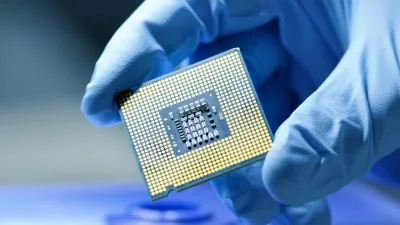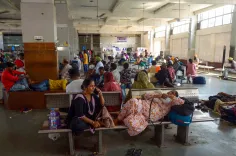What Are the Impacts of 6 Approved Chip Manufacturing Projects?

Synopsis
Key Takeaways
- Six semiconductor projects approved
- Investment of Rs 1,55,000 crore
- Creation of over 27,000 jobs
- Support for startups and MSMEs
- Focus on skilled workforce development
New Delhi, July 23 (NationPress) The government has sanctioned six semiconductor manufacturing initiatives, with a total investment nearing Rs 1,55,000 crore. These projects are projected to create over 27,000 direct job opportunities, as reported to Parliament on Wednesday.
As part of the 'Semicon India Programme', which has a budget of Rs 76,000 crore, the government aims to foster the semiconductor and display manufacturing ecosystem within the country, stated Jitin Prasada, Minister of State for Commerce and Industry, in a written response to the Lok Sabha.
Semiconductor manufacturing is an intricate industry that necessitates specialized skills. Consequently, a significant portion of the positions generated in this sector will be skilled roles. Additionally, since the semiconductor sector serves as a foundational industry, the establishment of these units is anticipated to have a multiplier effect on job creation across other sectors and their supply chains.
“The Design Linked Incentive (DLI) scheme provides financial backing to approved startups and MSMEs. From the 22 design companies approved under this scheme, 3 are located in Telangana,” the minister revealed.
Furthermore, design infrastructure support has been authorized for 11 companies in Telangana. Under the Chips to Startup (C2S) initiative, 22 institutes in Telangana are receiving assistance with design tools, while 6 institutes are being offered financial aid, Prasada added.
Likewise, among the 22 design companies approved under the DLI scheme, 3 are based in Tamil Nadu. Support for design infrastructure has been sanctioned for 6 companies in Tamil Nadu as well.
The C2S initiative aims to cultivate 85,000 skilled professionals in the semiconductor field. This program provides engineering institutions with essential software and tools for designing semiconductor chips, and over 45,000 students from 100 institutions have already enrolled.
In 2022, a Skilled Manpower Advanced Research and Training (SMART) Lab was established at NIELIT Calicut, aiming to train 1 lakh engineers nationwide, with more than 42,000 engineers already receiving training.
The government is also collaborating with industries and universities, including Lam Research, IBM, and Purdue University, the minister noted.







